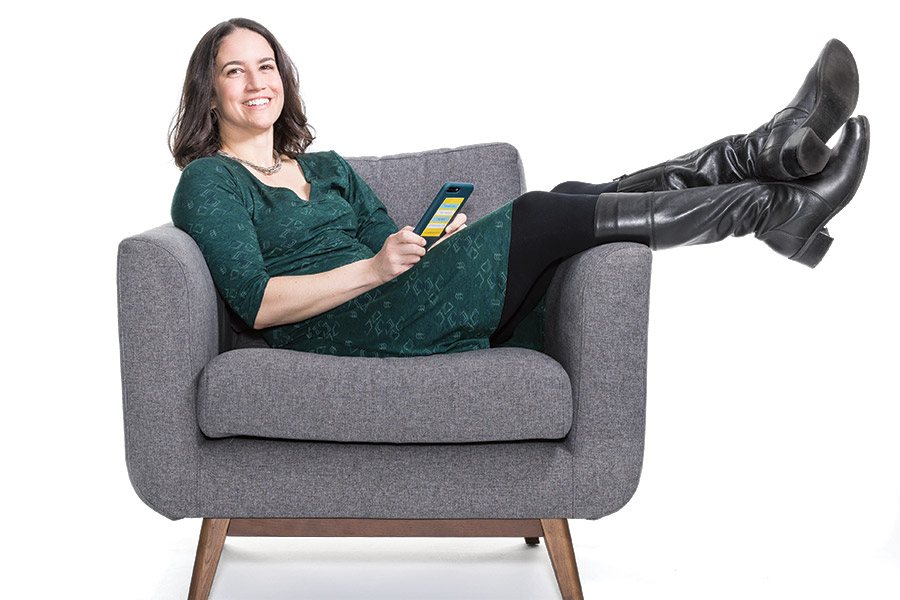Catherine Price’s Modest Proposal: Dump Your Smartphone
The author of the buzzy new book How to Break Up With Your Phone on having a healthy relationship with the (highly addictive) computer in your pocket.

Photograph by Colin Lenton
The Rundown
Age: 39
CV, abridged: Philly freelance science journalist published in The Best American Science Writing, the New York Times and Slate, among others. Last book: Vitamania: How Vitamins Revolutionized the Way We Think About Food (2016).
Side hustle: Obsessed with the musical Hamilton; created a walking-tour app about Alexander’s deeds here.
Phone breakup tips: Phonebreakup.com
When did you realize you needed to break up with your phone?
It was two and a half years ago. I had a baby, and I was sitting there in a room late at night with her. I saw her looking up at me, and I noticed that I was looking down at my phone. I had this out-of-body moment of seeing what that would look like from the outside, and it really upset me. I didn’t want that to be her first impression of her mother or a human relationship. I was also inspired by a mindfulness-based stress reduction course I took with my husband. That class made me aware of how I choose to use my time and how moment-to-moment decisions affect our lives.
In your book, you lay out a step-by-step guide for readers. Is your goal to get us to chuck our phones altogether?
No, the point is not to dump your phone or throw it under the bus. Breaking up with your phone means going from having this obsessive romantic relationship where you’re thinking about your phone all the time, to being friends with your phone. Maybe friends with benefits. You’ll use your phone when it’s helpful and when it’s genuinely enjoyable. The goal is to have control over the relationship.
What’s the most jarring stat about phone use you’ve come across?
How much time the average person spends on their phone each day — three hours and 57 minutes. This is according to Moment, an app that tracks phone time. What’s especially astounding is that it only tracks the time when the phone screen is on. That doesn’t include when you make calls or listen to music or podcasts. I don’t think most of us realize that that’s a quarter of our time awake.
At the beginning of your journey, your family had digital Sabbaths. How did that work?
We decided to see what it was like to unplug for 24 hours. We turned off all screens on Friday night and lit a candle to mark some kind of ritual. At first, we felt a constant twitch to check our phones. But at the end of 24 hours, we felt a surprising sense of calm. I realized that our phones are Pandora’s boxes of emotions. You’re going to feel anxious, stressed or fearful when you see another work email. Or maybe you’ll feel excited, but you’re going to feel the need to follow up on something.
What’s the hardest part of the breakup?
It’s the part where you have to figure out what you want to do with your time. There are all sorts of difficulties in breaking our habits, but at the core is that we’re using our phones to fill little spaces in our lives to avoid having to be alone with our thoughts.
Where should people who have never thought twice about their relationship with their phone start?
They should look at their behaviors and decide for themselves: Does this feel healthy? Does this make me happy? It goes back to being mindful and deciding what you want to pay attention to. Give yourself forced pauses, like lock-screen images and phone stickers that say, “Do you really want to pick me up right now?”
Published as “Catherine Price’s Modest Proposal” in the May 2018 issue of Philadelphia magazine.


